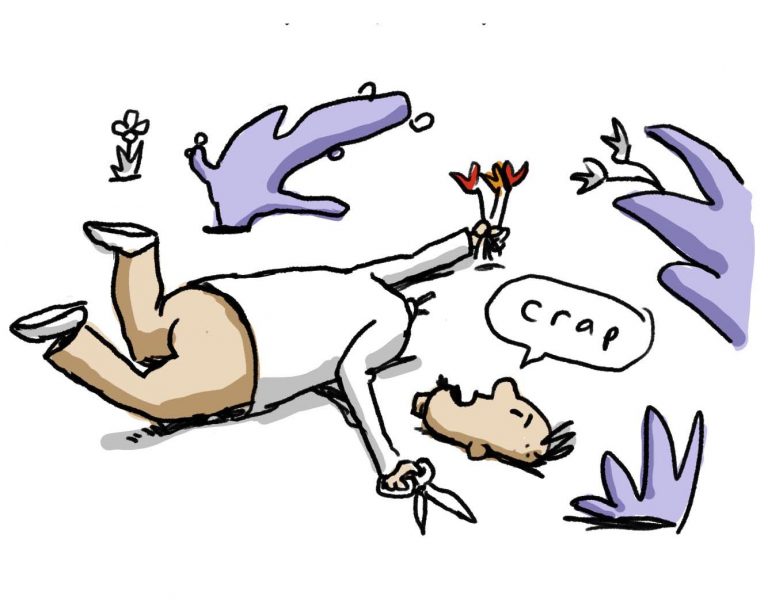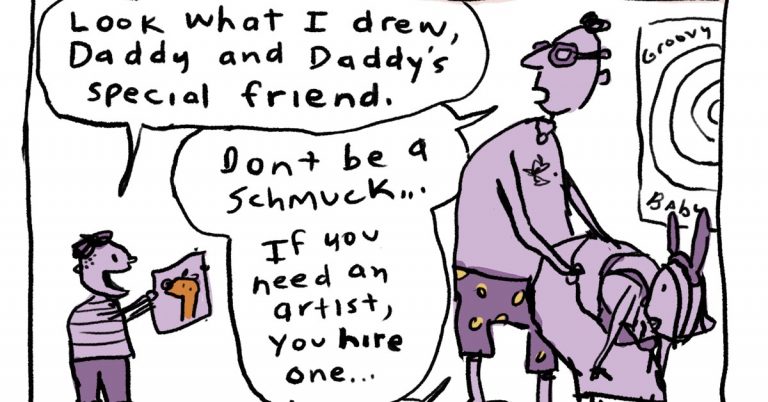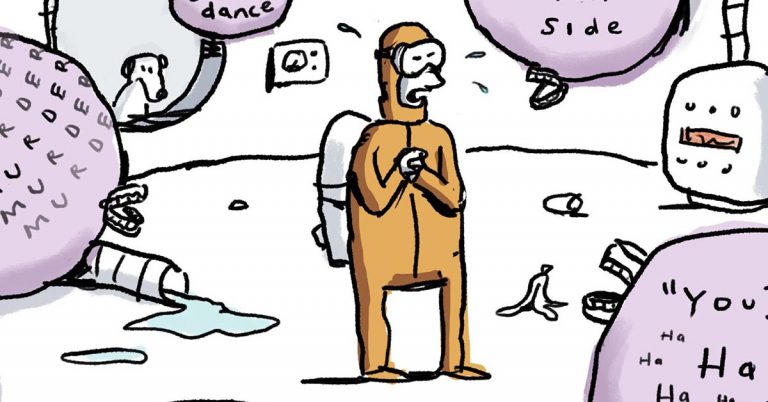As much as I’ve tried, I haven’t quite found my place in the world yet.
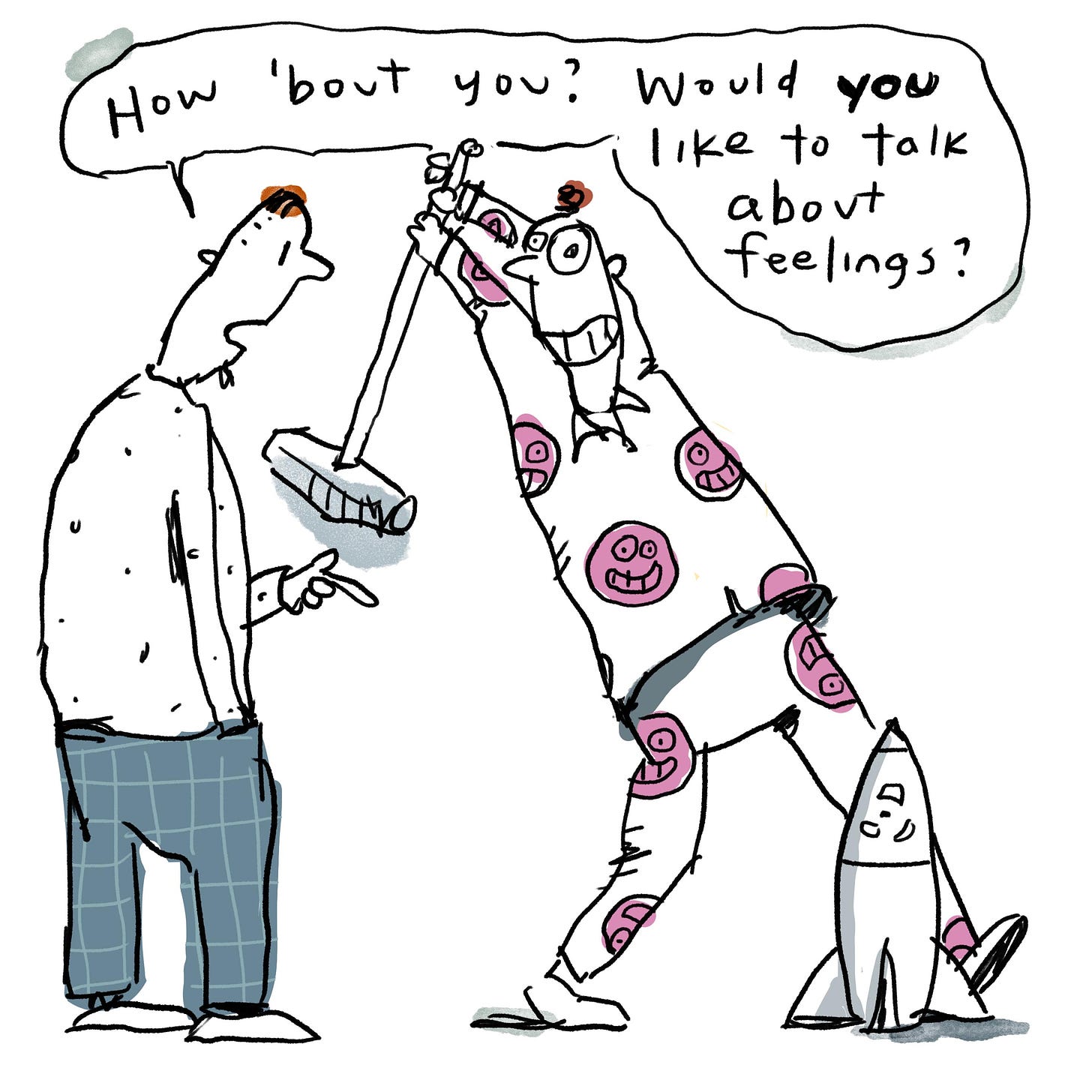
For a long, long time, I powered forward thinking I’d find belonging through work. With success, I imagined feeling loved, appreciated, and needed—home, sweet, home.

My confusion is forgivable. Back in prehistory, when people did their share of work, they were, indeed, loved and appreciated. Belonging wasn’t one of the many challenges back then.
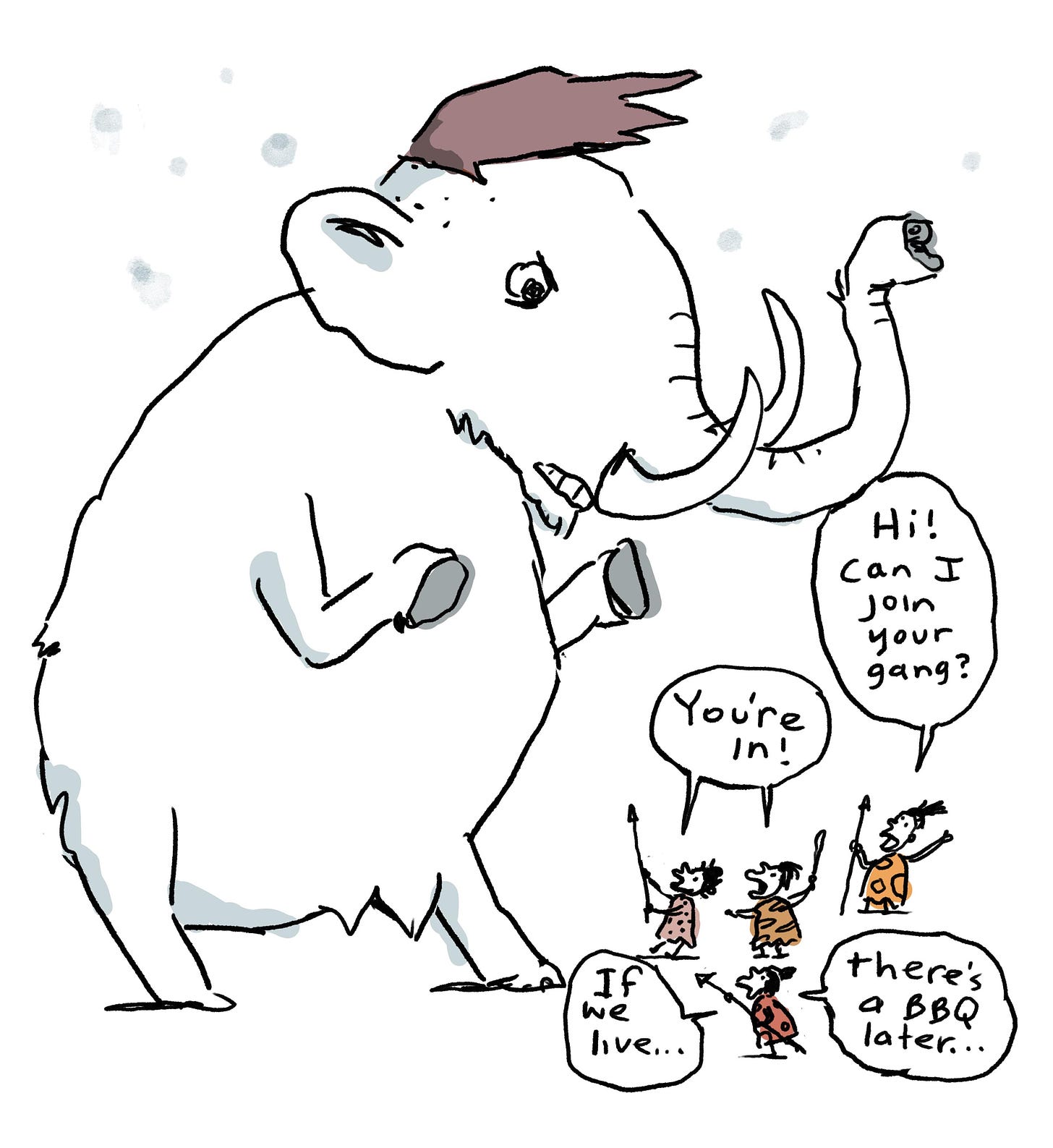
In the caves, everyone was needed. Survival depended upon belonging. Back then, everyone saw and appreciated what everyone else contributed. But once the tribe swelled and we started commuting to specialized jobs in some other place, our friends and family no longer saw what we did and didn’t much need to care.

Today, work is separated from the rest of our lives and is no longer the mechanism by which we can satisfy our pressing evolutionary need for belonging. In our modern, industrial mega-tribe, work is far too transactional and transient to create anything resembling social security.

No amount of success, prestige, fame, followers, money, or power can ever do the trick because belonging doesn’t come from work anymore. This is exactly why enough is never enough.
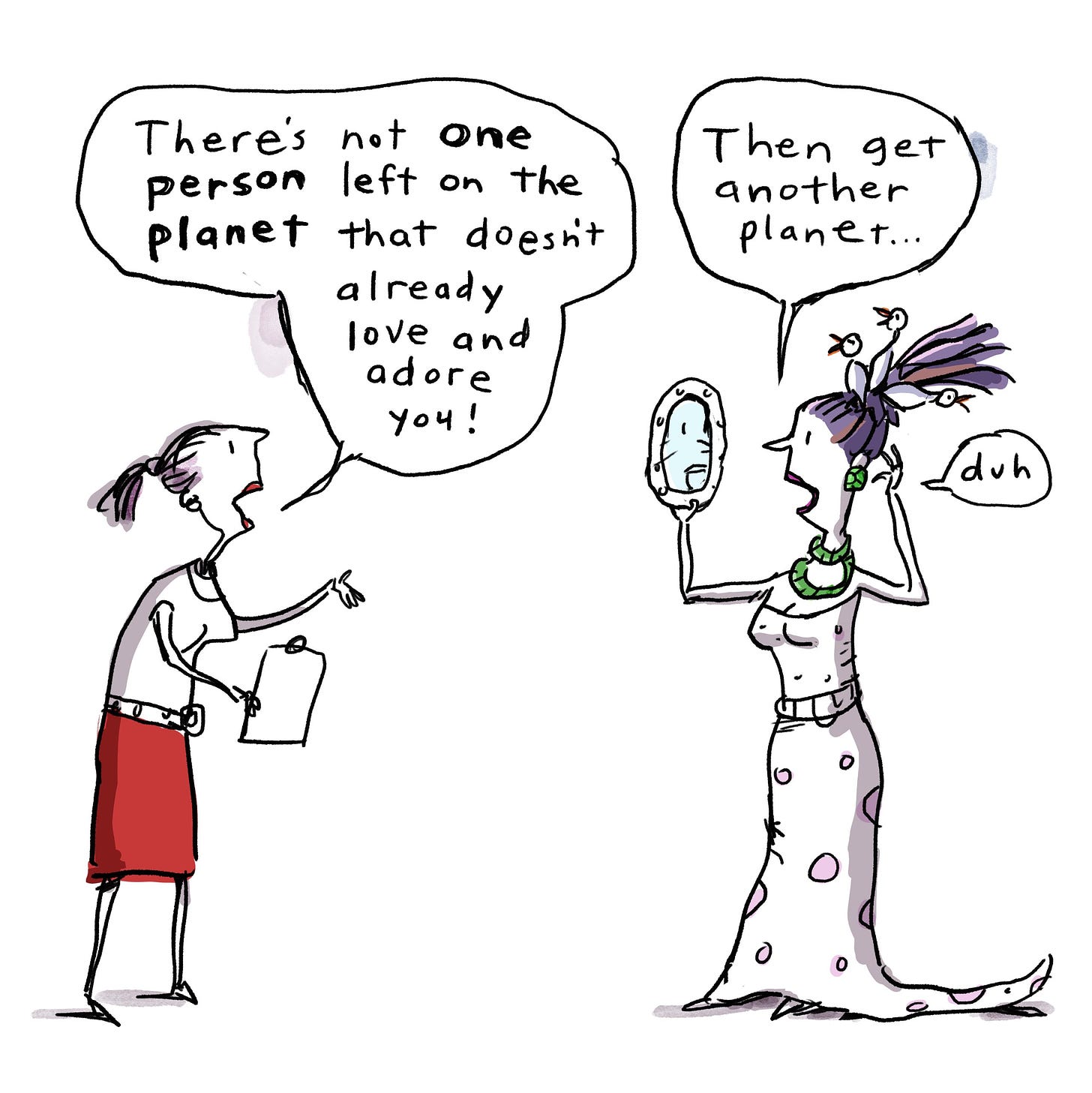
To satisfy our naturally selected compulsion to be in bands of trusted allies, we have no choice today but to build communities of people who have our backs outside of work.

Insufficient belonging has left me chronically anxious, uncomfortable, angry, judgemental, depressed, impatient, sick, and a bunch of other unpleasant things. To feel better, I have no option but to figure out how to get meaningfully connected.

A lot of you can already do this. It comes naturally, as it did for most of human history. People like me, on the other hand, have had to reason it out.

Connecting to others was not one of my innate skill sets. But I’m learning now. Knowing not to look to work for what I lack is the first step. Becoming more comfortable with myself and more present socially are also helping a lot.
Still, it’s a challenge that is complicated by the fact that I’m not the only one struggling with basic social skills. But it is possible. And imperative.
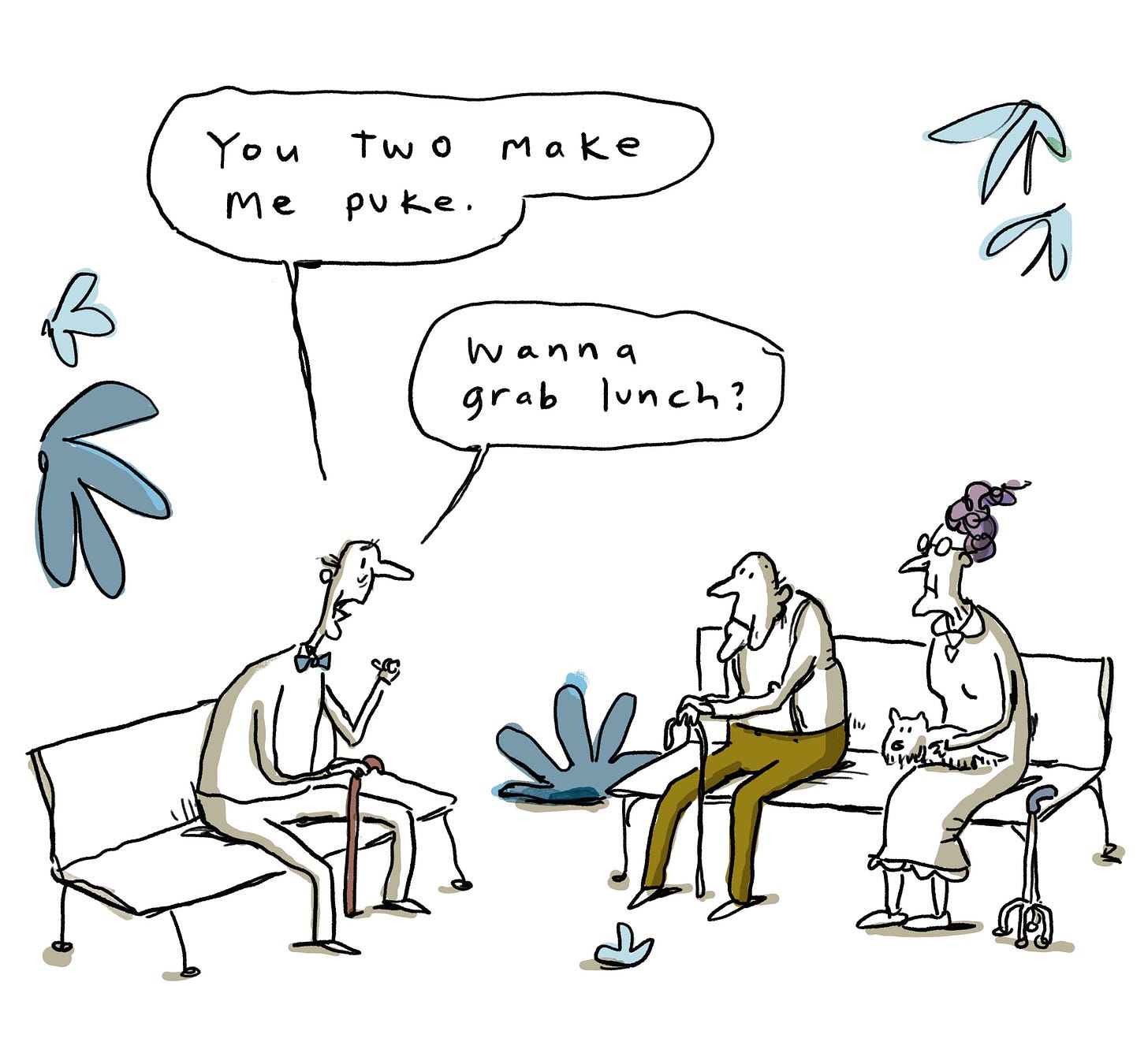
Meanwhile, by recognizing that work can never deliver the big prize of love and belonging, I’ve been freed to find the quieter yet critical sense of being useful that work is so very good at providing.
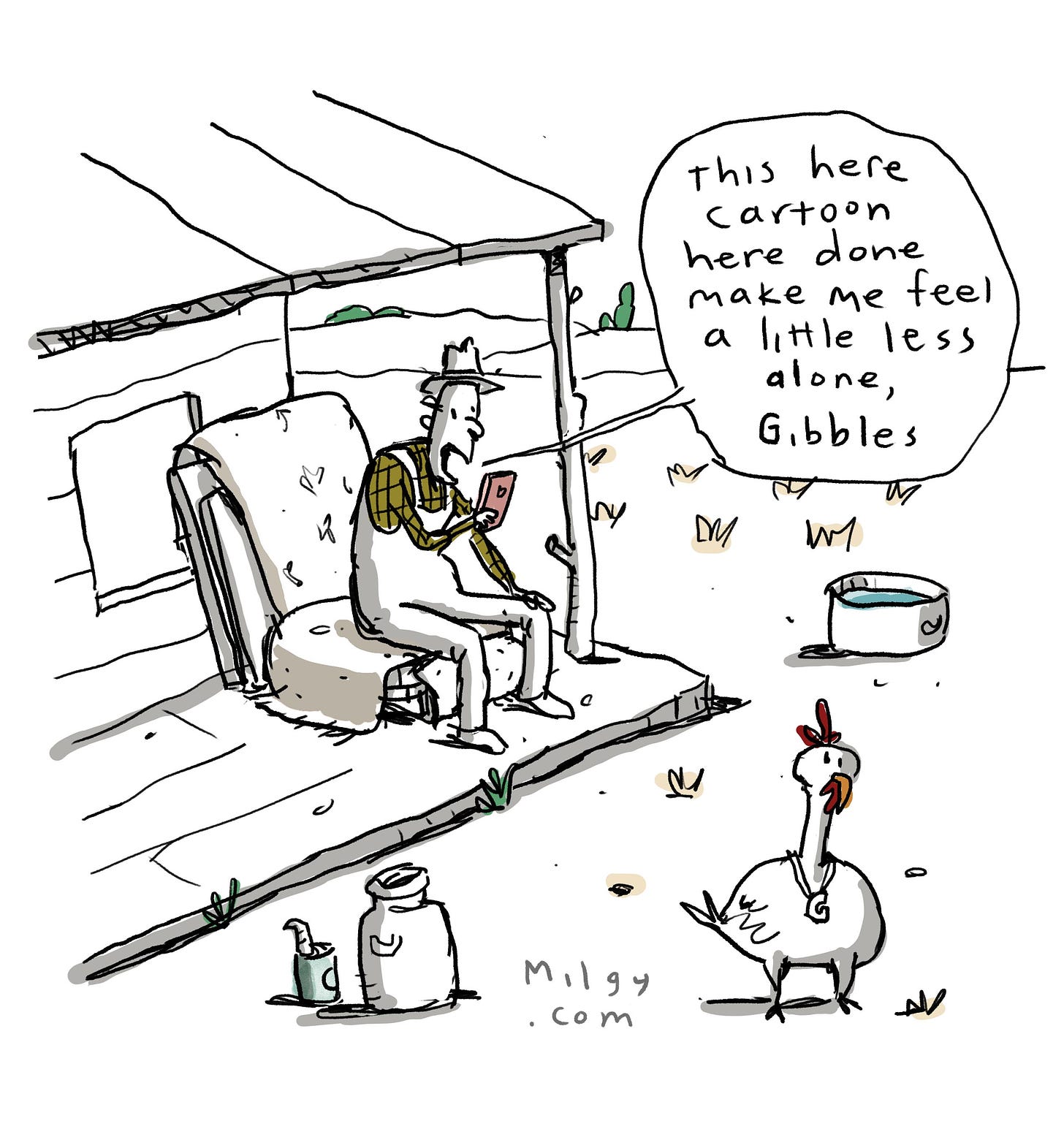
Feeling useful at work isn’t a sub for belonging, but it is still a critical drive. It can’t deliver the bigger payload that comes from real bonding, but it is very far from nothing.
Confusing success with belonging has kept me from finding both real community in my life and a sense of ease, focus, and joy in my work. It’s a fool’s errand that, mercifully, I’m no longer running.
